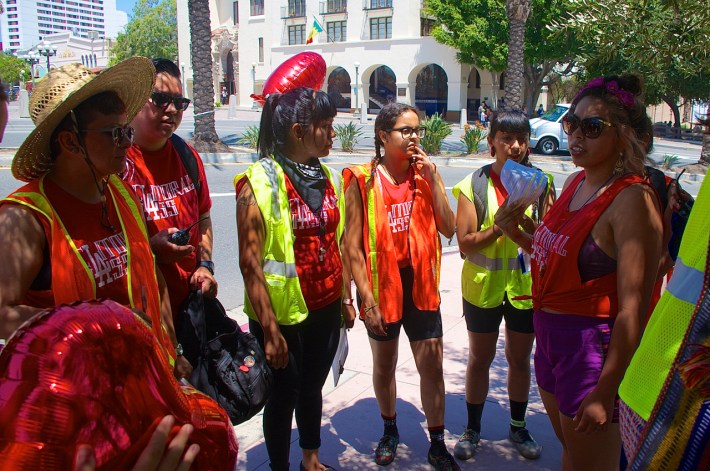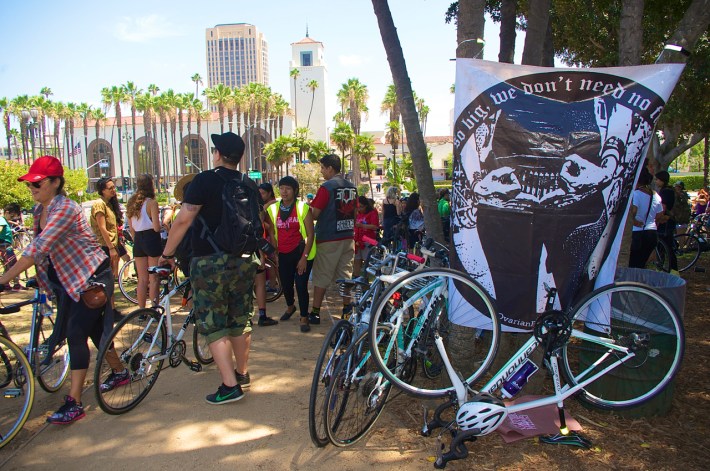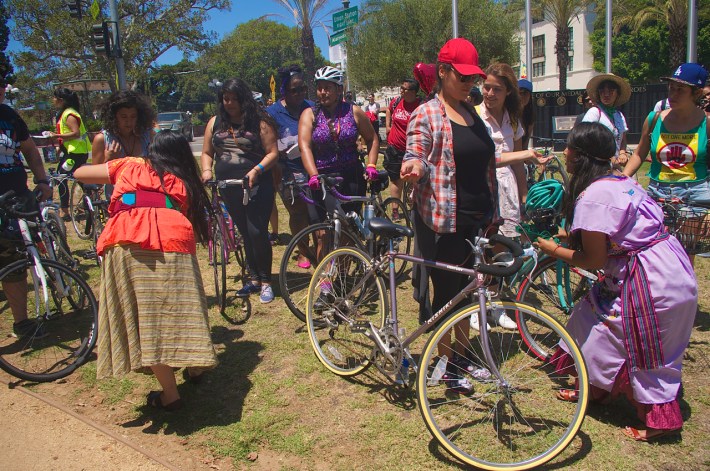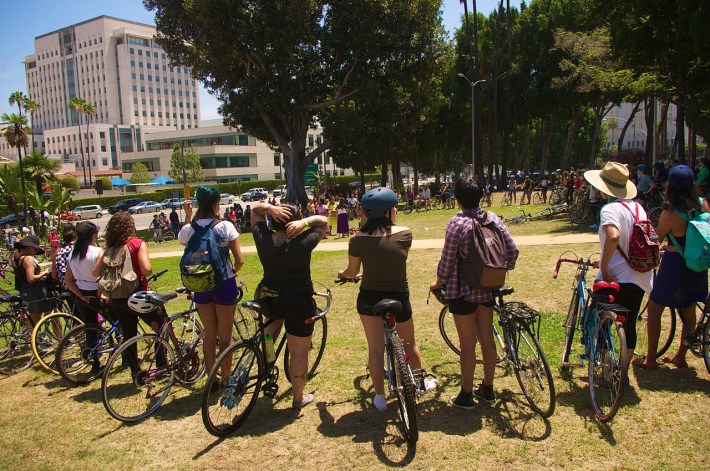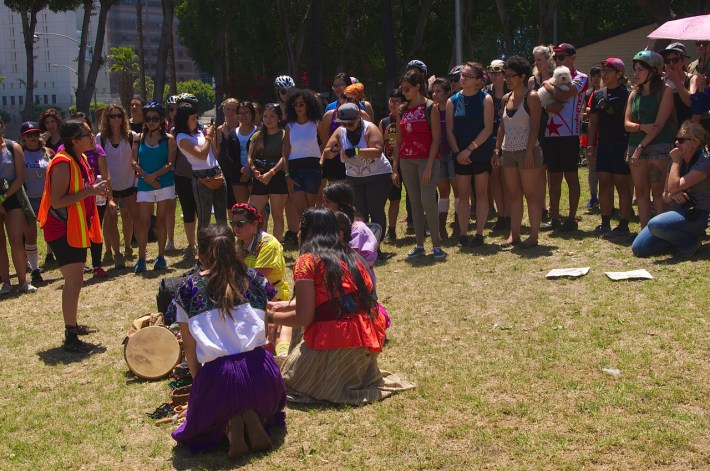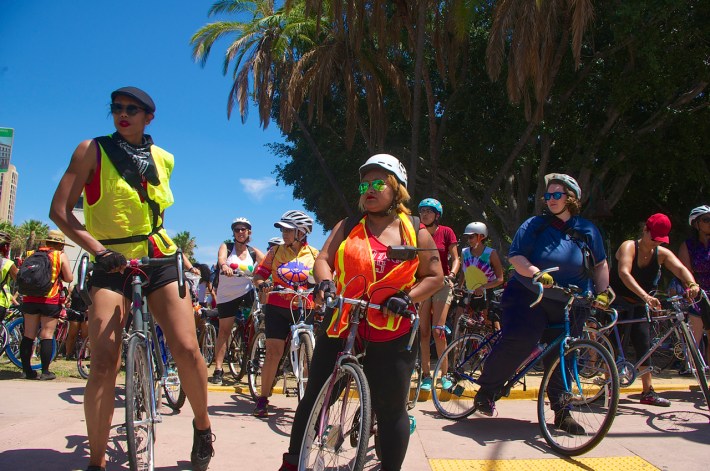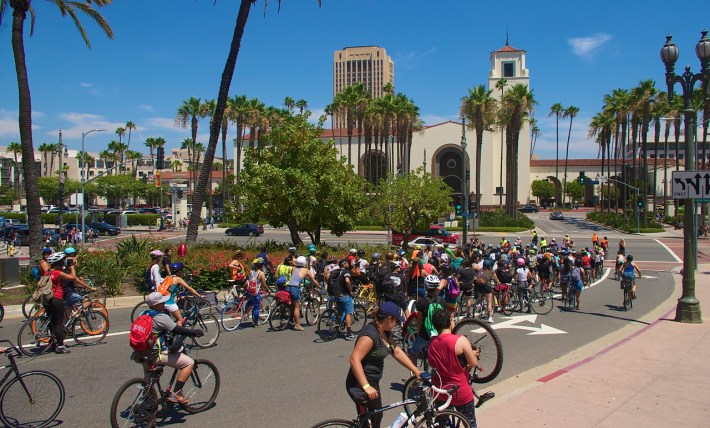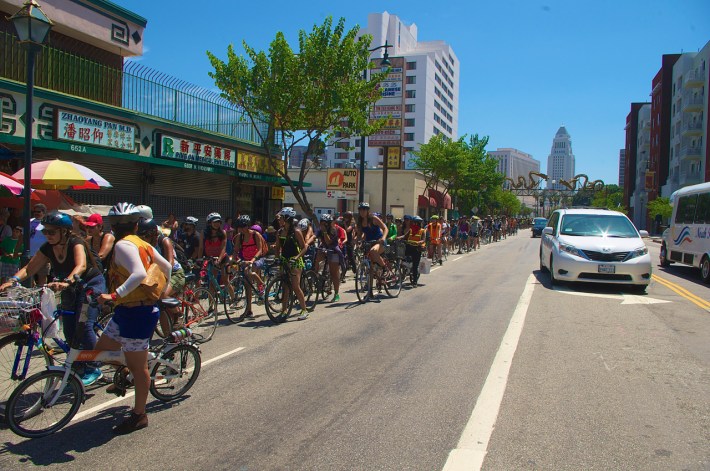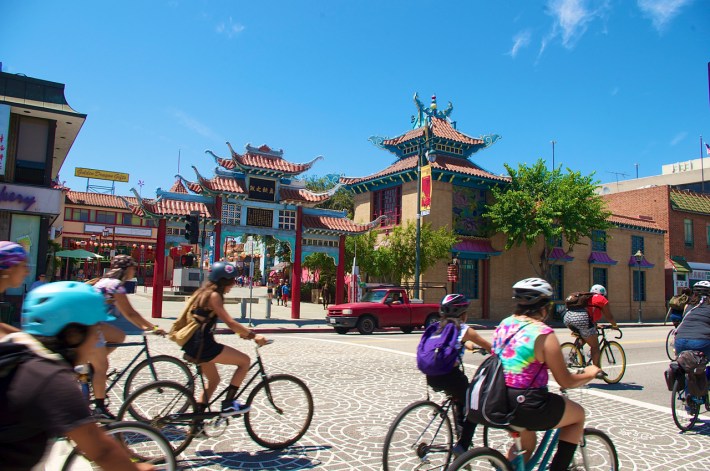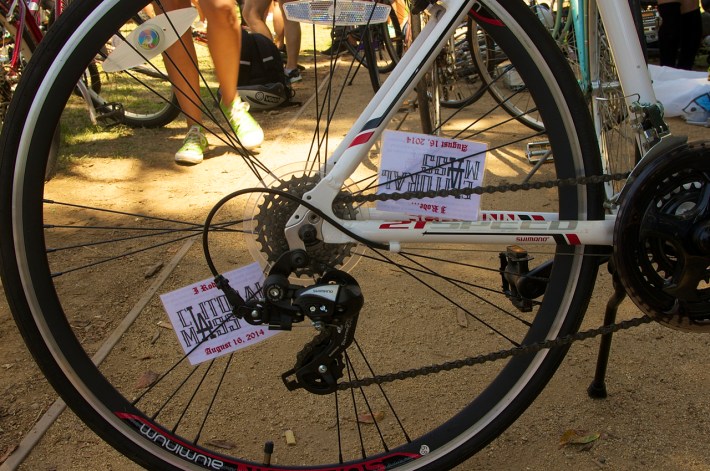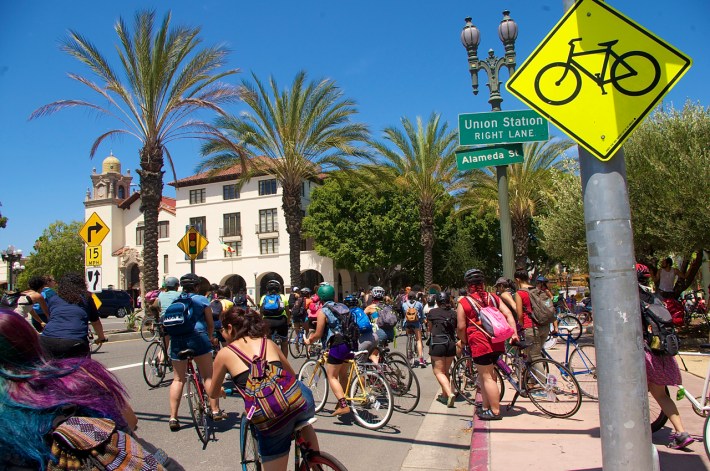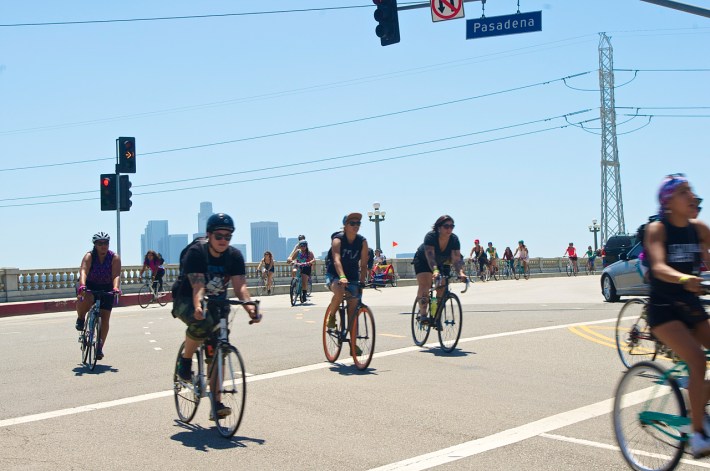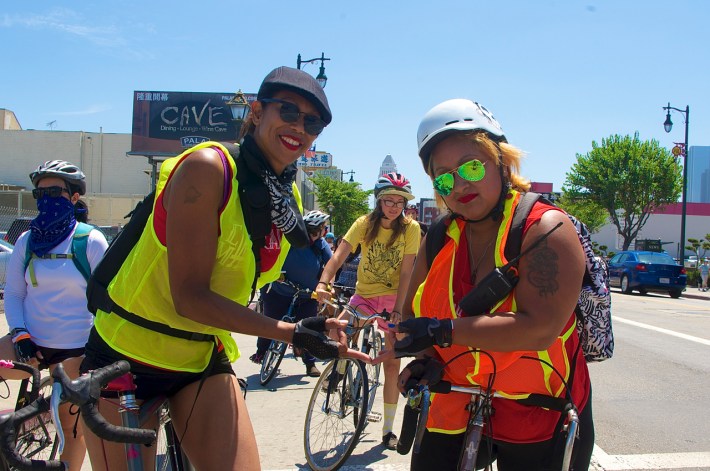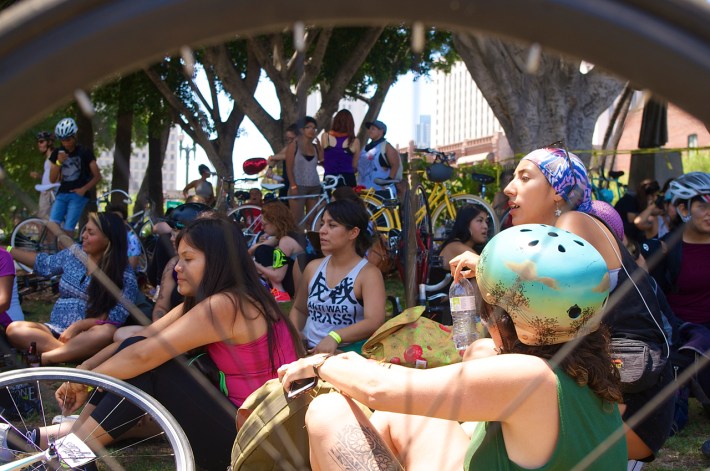
Looking out over the growing group of women and women-identified folks gathering on the grassy knoll behind Olvera St. for the Ovarian Pscyo-Cycles 4th Annual Clitoral Mass ride, I realized that, despite having attended the previous three events, I only recognized a handful of the riders.
Considering there were probably more than 200 cyclists on the green, and more were arriving all the time, that was saying something.
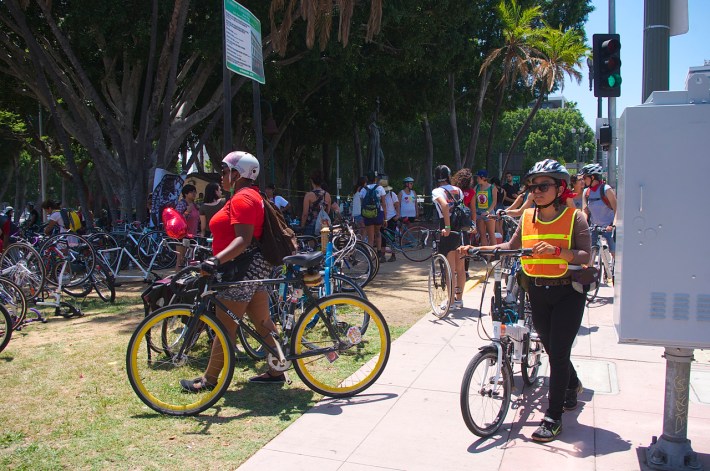
I mentioned this to Maryann Aguirre, one of the women that had been instrumental in organizing the first Clitoral Mass in 2012.
Nodding, she took a minute to survey the crowd.
The event now seemed to have a momentum of its own, we agreed, attracting long-time cyclists, novices, and everyone of every age, race, make, and mold in between.
And it was clearly meeting a need, given all the new faces and excited exclamations of, "We need this!" and "I have been waiting all year for this!" I was hearing.
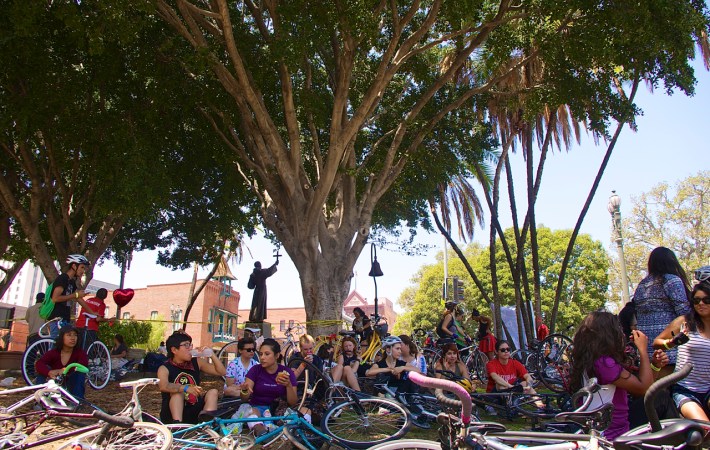
When the Ovas first decided to launch the event four years ago, it was because they had felt there was a need to carve out space on the streets for those women and women-identified folks -- particularly those of color -- who didn't feel their experiences were validated or welcome in other cycling spaces.
It is not a concept that is terribly controversial right now. But back then, conversations around equity, inclusion, and the mobility of those on the margins had yet to really take root in the livable streets and cycling communities. So, the idea of a female (identified)-centric ride caused a bit of a stir.
The Ovas were accused of exclusion by some and of misandry by a very small minority of disgruntled men. Some of the critics threatened to show up and crash the ride. A few even took it upon themselves to organize a counter-balancing ride for "Brovarian Psychos," where those poor and oppressed (and grammatically-challenged) souls seeking to promote "man-ism, jism, mens' rights, reform of family court, selective service, anti-male stereotypes, to counter-manginas and white knights, and restore balance to the force [sic]" could finally feel supported.
Despite all the nonsense, the Ovas' first event went off peacefully. And instead of the world ending, the ride became something of an institution -- a day of sisterhood and solidarity around which riders from around the Southland and beyond were willing to adjust their summer schedules so they could be sure to be in town. It even inspired a national movement and, in 2013, saw sister rides spring up in Oakland, Toronto, New York City, Atlanta, and Chicago.
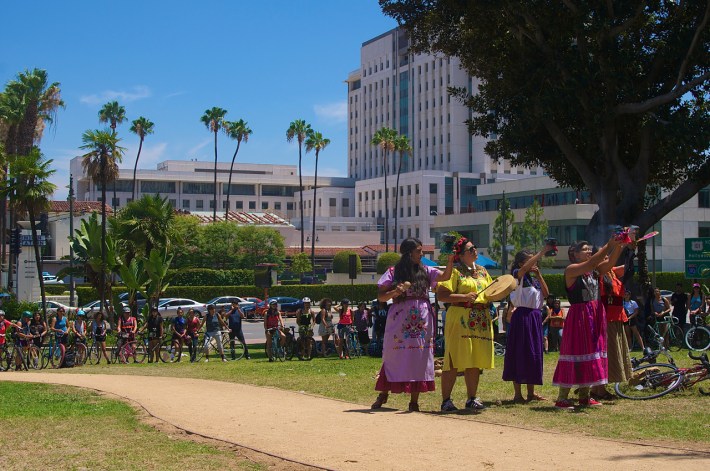
As the crowd grew for this past Saturday's ride, I was struck by the extent to which the event served as a gateway ride for so many of the participants. Many were clearly very new to cycling and were on bikes that they were dusting off for the first time in years.
The novices were a contingency the Ovas had planned for. They and their support team, including a handful of male allies, purposely gave themselves a two-hour period before roll-out to check participants' bikes and ensure they were in working condition. Pit stops along the way, featuring entertainment, food, and conversations around social justice, also served as opportunities to do minor wrenching and keep everybody rolling.
And for those things that could be not fixed by human hands, there was a blessing of the bicycles (and riders) and an honoring of the ancestors through sacred drum, prayer, and songs before the riders set out from Olvera Street (above).
I unfortunately was not able to go all 30 miles with the Ovas as they traveled to Rio de Los Angeles State Park, Oak Park in Northeast Los Angeles, Lincoln Park (off Valley Blvd.), Hollenbeck Park, Macarthur Park, and back to Placita Olvera. So, the pictures that follow below are just from the meet-up and first leg of the trek. For more about the Ovas or information about their monthly Luna rides, check out their Facebook page, here.
